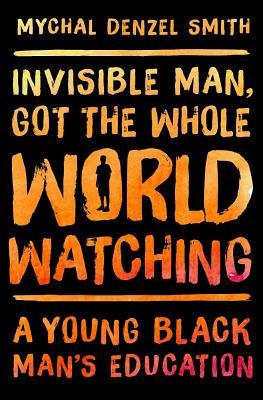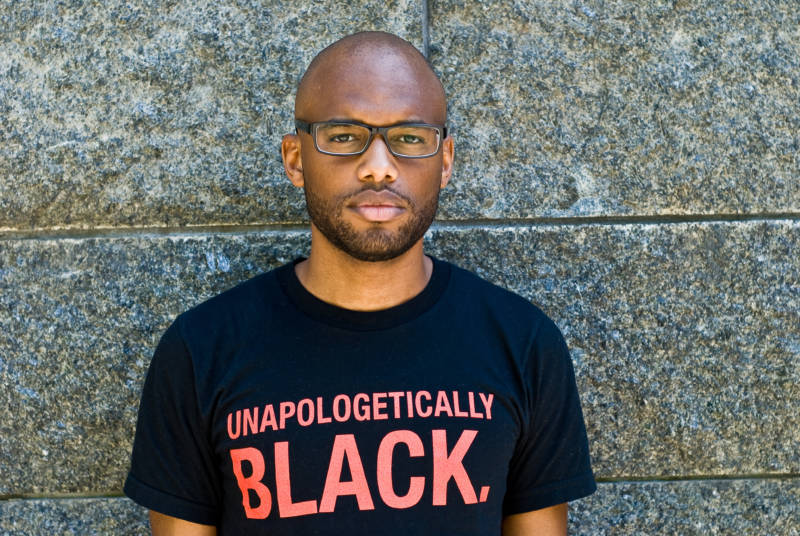Born in 1986 as the son of a career Navy man, Smith admits to growing up with a comfortable, relatively apolitical middle-class existence — until pop culture, first in the form of The Boondocks, revealed a different way of thinking. “It was as if the blackness messiah had come down to lay hands on me personally,” Smith writes about his first encounter with Aaron McGruder’s political comic strip, which was first printed in The Source magazine.
From there, Smith threads smoothly into Malcolm X, whose self-taught radical form of truth-telling about white supremacy and black pride fired up a young Smith in a way that Martin Luther King Jr. never did. Hip-hop came next: Public Enemy, Ice Cube, KRS-One, Dead Prez, the Roots and Mos Def; more truth-tellers blowing up Smith’s nascent political imagination.
And then came Barack Obama. In Obama, Smith finds a fascinating foil. When his father gifts a copy of Obama’s first book, Smith isn’t much interested.
I wasn’t impressed by Barack Obama because he wasn’t Tupac. He wasn’t Mos Def or Aaron McGruder. He wasn’t Malcolm X. Barack Obama was my parents’ idea of black excellence: “well” dressed, “well” spoken, advanced degrees from prestigious universities, successful professional, ambitious, nonthreatening, a rebuke to the stereotypes, Twice as good. But he was a politician, and politicians didn’t tell the truth. My heroes were truth-tellers, the people who exposed racism and were committed to fighting in the name of black liberation. They knew there was no sense in asking for freedom. Barack Obama, the speech that made him famous, seemed to be denying the need for the fight. He wasn’t even asking — he was accepting.
Smith looks elsewhere to answer the main question taking up all his headspace: What does it mean to be a black man in America? He learns how to engage critically with text from an English professor at Hampton University. He learns how to live by his ethics from Dave Chappelle, who memorably walked away from a $50 million contract with Comedy Central in the mid-aughts. He learns about the radical black left by reading Angela Davis and Assata Shakur. And, in a reminder that Kanye West once did more than design overpriced clothes, Smith learns about surrendering to black rage from watching Kanye tell a television audience of millions that “George Bush doesn’t care about black people.”
“I couldn’t have loved him any more,” writes Smith. “I was no longer alone.”
Smith spends the rest of the chapter arguing for black rage as a political tool, analyzing all of the ways it’s been overtly and systematically suppressed in the U.S. He doesn’t stop there: by the book’s end, he’s taken a hard look at how black men and women in this country are shaped by homophobia, patriarchy, misogyny, “survivor’s guilt” and racism. Smith saves his most brutally honest writing for last, when he recounts his years-long struggle with anxiety, depression and survivor’s guilt after the violent death of a favorite (male) cousin. Wisely, Smith weaves in references to a book by feminist public intellectual bell hooks, Rock My Soul: Black People and Self-Esteem, in which she asserts that “mental health is the revolutionary anti-racist frontier African Americans must collectively explore.”
To truly heal, black Americans have to start with the right questions, demands Smith. By rigorously interrogating the forces that have shaped his own life from multiple entry points, Smith essentially demands the same of his readers. Ask and ask again. How did I become who I am?
“We recreate white supremacy, misogyny, homophobia, transphobia, class-based elitism, self-hatred, violence, and untreated mental illness in part because we have failed to ask the right questions and about how to end them. So far, we’ve mostly asked how we can stop the bleeding.”
Every American should read this book. It provides hope that we can survive the violent growing pains of a nasty, brutal, adolescent America.
Mychal Denzel Smith appears at Book Passage in Corte Madera on June 30. Details here.



